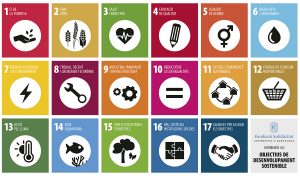The UB Solidarity Foundation has a long track record in the promotion of social agriculture in Catalonia and extensive experience in development cooperation projects aimed at environmental sustainability, the efficient management of natural resources and the improvement of the living conditions of groups in a situation of vulnerability. Thus, the initiatives of this program are aimed at the implementation of nature-based solutions (NBS) to favor sustainable and socially resilient development alternatives.
Social agriculture
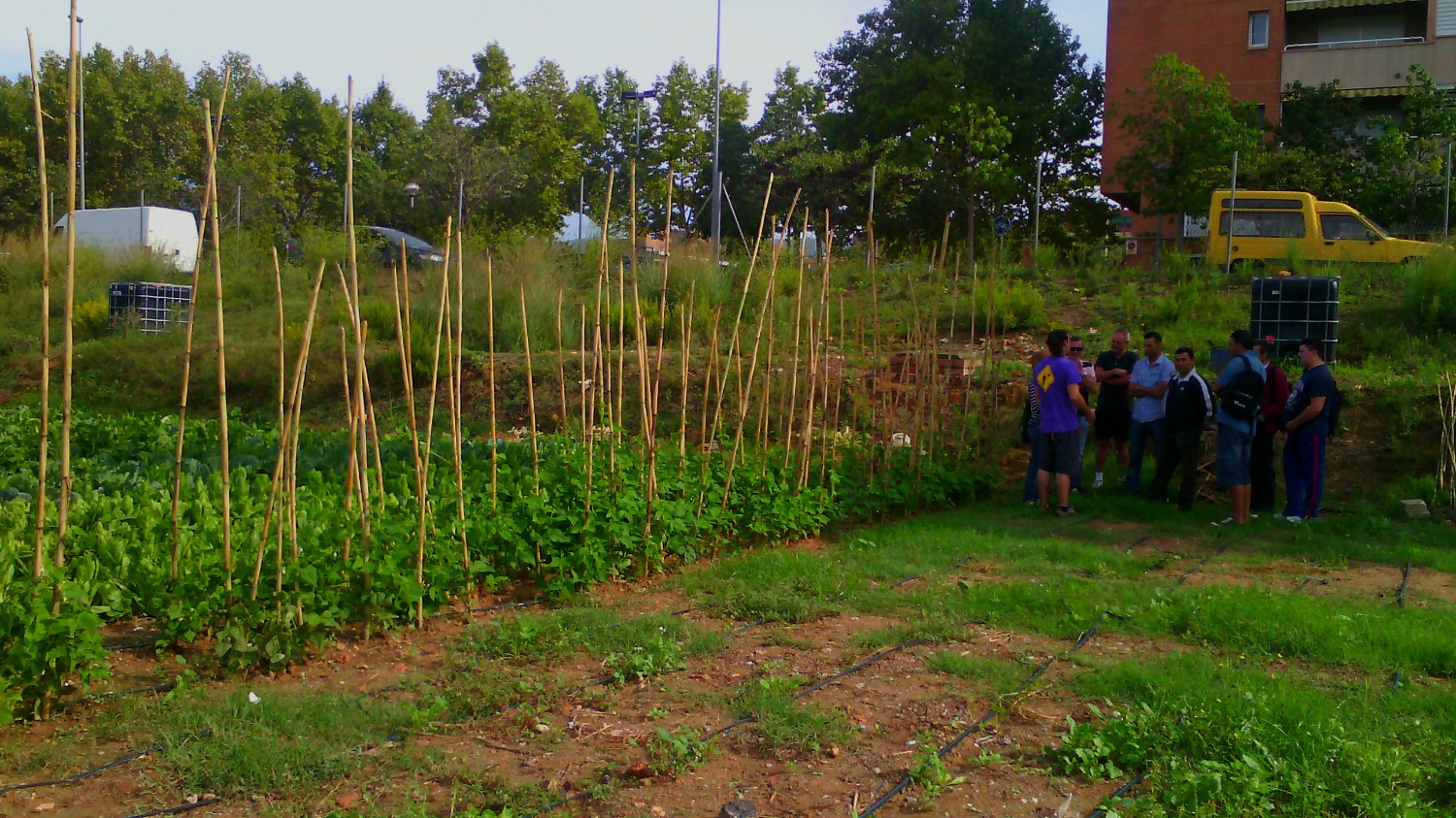 Under the supervision of professionals in the agriculture and social intervention fields, the UB Solidarity Foundation has carried out several projects based on urban agriculture for the socio-labor insertion of people at risk of exclusion from the Barcelona Metropolitan Area. These projects have dealt with values linked to the recognized educational, recreational, and personal and social well-being function of urban gardens.
Under the supervision of professionals in the agriculture and social intervention fields, the UB Solidarity Foundation has carried out several projects based on urban agriculture for the socio-labor insertion of people at risk of exclusion from the Barcelona Metropolitan Area. These projects have dealt with values linked to the recognized educational, recreational, and personal and social well-being function of urban gardens.
For example, we have worked with long-term unemployed people, in Sant Feliu de Llobregat; unemployed people, retirees and citizen organizations, in Santa Coloma de Gramenet, and young people at risk of exclusion, in the Besòs-Barcelonès North axis.
Since 2013, the UB Solidarity Foundation has run in Barcelona the “Technician in maintenance of urban gardens, composting centres and gardening” pre-labour course, 250 hours, promoted with the ASSÍS Reception Centre and primarily intended to people in situation of homelessness. The main objective of the course, recognized as a university extension diploma by the UB (30 ECTS credits), is to be a tool for the involvement, empowerment and training of students in order to improve their chances to access the labour market.
Nature-Based Solutions (NBS) for a sustainable development in the world
Beyond social agriculture in Catalonia, the UB Solidarity Foundation also executes international cooperation projects that, through nature-based solutions, promote sustainable development and social resilience in different countries around the world.
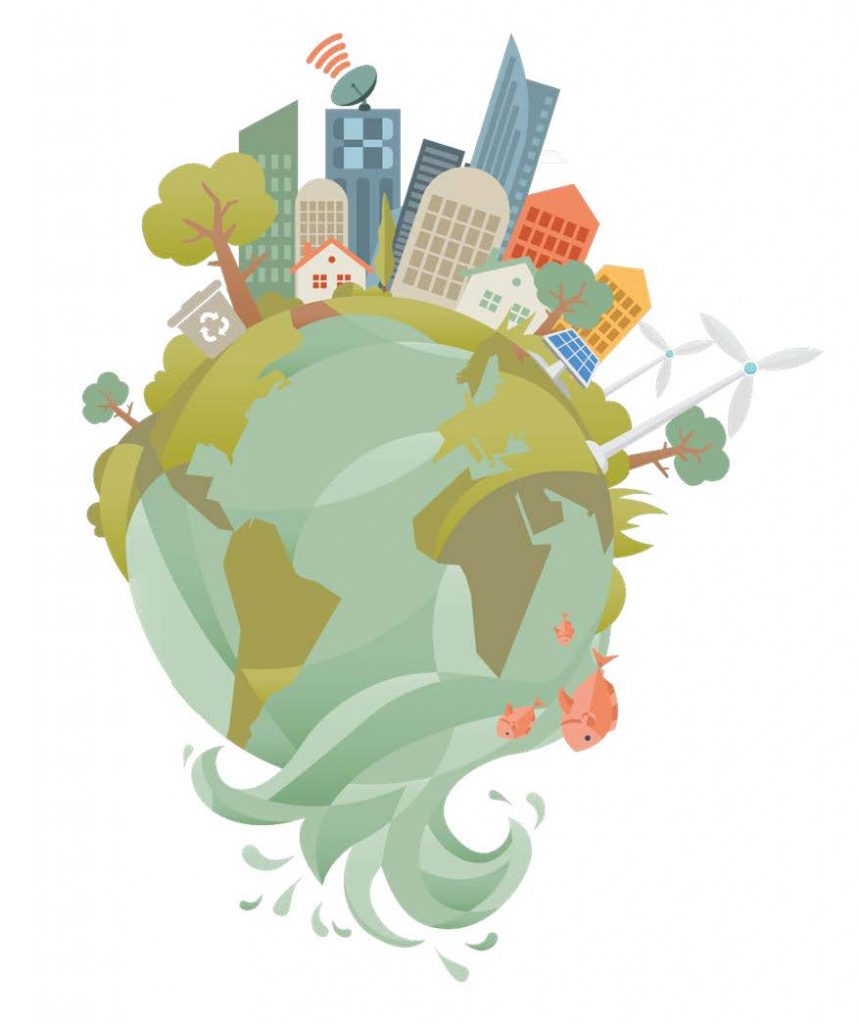 From 2018 to 2023, UB Solidarity has been one of the partners of the research project EdiCitNet – Edible Cities Network, funded by the European Union’s Horizon 2020 program: an initiative with 35 partners in 13 different cities around the world that sought to implement and evaluate nature-based solutions for the transition to sustainable and socially resilient food-producing cities.
From 2018 to 2023, UB Solidarity has been one of the partners of the research project EdiCitNet – Edible Cities Network, funded by the European Union’s Horizon 2020 program: an initiative with 35 partners in 13 different cities around the world that sought to implement and evaluate nature-based solutions for the transition to sustainable and socially resilient food-producing cities.
Particularly, the Foundation has provided technical advice to the City Council of Sant Feliu de Llobregat for the development of a strategic urban plan that integrates this type of solutions, and has collaborated with the Catalan Institute for Water Research (ICRA) for the creation of natural urban planning solutions for sustainable development.
Also, from 2023 to 2027, UB Solidarity is a partner of the “LIFE4Zoo – Water Resources Management in Visitor Attractions – FIT4USE Water Recirculation Technology” project, led by the Technical University of Liberec (Czech Republic) and financed by the European Commission, which will last carried out a demonstration of natural systems to treat and recycle water in the zoological parks of Liberec and Barcelona.
And, from 2024 to 2027, UB Solidarity takes part in the “SOLLAGUA” project: a transnational three-years initiative, driven by a consortium of ten entities and co-funded by the Interreg Sudoe Programme, which aims to promote nature-based solutions for water reuse, as well as living labs, in the SUDOE region; particularly, in three rural communities in Portugal, Spain and France.
Other actions are located in:
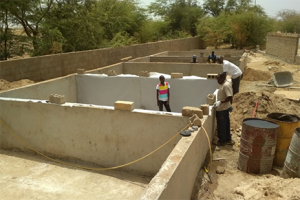 Senegal: From 2016 to 2025, together with the Gaston Berger University (UGB) and Món-3 foundation, the UB Solidarity Foundation has carried out international cooperation projects based on the implementation of low-cost, environmentally sustainable technologies to contribute to the sustainable management of waste water and sanitation services in the Saint-Louis region, with the ultimate aim of improving the quality of life and well-being of the population.
Senegal: From 2016 to 2025, together with the Gaston Berger University (UGB) and Món-3 foundation, the UB Solidarity Foundation has carried out international cooperation projects based on the implementation of low-cost, environmentally sustainable technologies to contribute to the sustainable management of waste water and sanitation services in the Saint-Louis region, with the ultimate aim of improving the quality of life and well-being of the population.
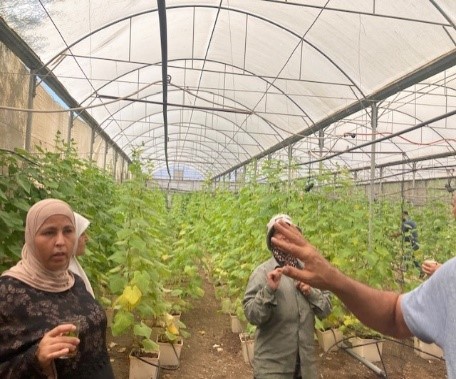 Palestine: From 2021 to 2025, the UB Solidarity Foundation promotes two projects to improve the training of Palestinian women’s cooperatives (integrated into the Palestinian Farmers Union) in the field of agricultural production, water management and cooperative organization, taking into account take into account the context of climate change. The projects, promoted with the Catalan Association for Peace (ACP) and the support of the ACCD and the AECID, include the launch of an experimental farm of hydroponic crops, linked to the Palestinian Technical University – Kadoorie in Tulkarem (West Bank).
Palestine: From 2021 to 2025, the UB Solidarity Foundation promotes two projects to improve the training of Palestinian women’s cooperatives (integrated into the Palestinian Farmers Union) in the field of agricultural production, water management and cooperative organization, taking into account take into account the context of climate change. The projects, promoted with the Catalan Association for Peace (ACP) and the support of the ACCD and the AECID, include the launch of an experimental farm of hydroponic crops, linked to the Palestinian Technical University – Kadoorie in Tulkarem (West Bank).
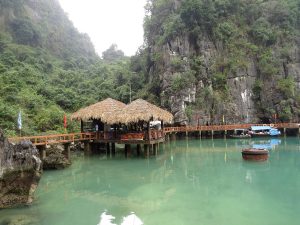 Southeast Asia: From 2021 to 2024, the UB Solidarity Foundation participates in the Inow Asia project, coordinated by the University of Girona and funded by the European Union, to develop innovative multilevel training programs for new water professionals in six universities in Cambodia, Laos and Vietnam. UB Solidarity is also an associate member of a project led by RMIT University (Australia) to help integrate nature-based water treatment technologies in six cities in Sri Lanka, the Philippines and Vietnam.
Southeast Asia: From 2021 to 2024, the UB Solidarity Foundation participates in the Inow Asia project, coordinated by the University of Girona and funded by the European Union, to develop innovative multilevel training programs for new water professionals in six universities in Cambodia, Laos and Vietnam. UB Solidarity is also an associate member of a project led by RMIT University (Australia) to help integrate nature-based water treatment technologies in six cities in Sri Lanka, the Philippines and Vietnam.
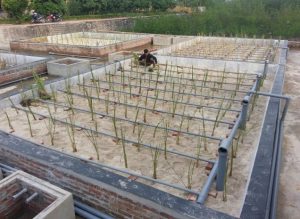 Vietnam: From 2010 to 2013, together with the National University of Vietnam, the UB Solidarity Foundation set up an industrial waste water treatment plant in a seafood manufacturing industry in Halong Bay, which is a UNESCO World Heritage Site. The plant works with ecological systems and is the first infrastructure of its kind in the Southeast Asia, registered in the World Register of Constructed Wetlands.
Vietnam: From 2010 to 2013, together with the National University of Vietnam, the UB Solidarity Foundation set up an industrial waste water treatment plant in a seafood manufacturing industry in Halong Bay, which is a UNESCO World Heritage Site. The plant works with ecological systems and is the first infrastructure of its kind in the Southeast Asia, registered in the World Register of Constructed Wetlands.
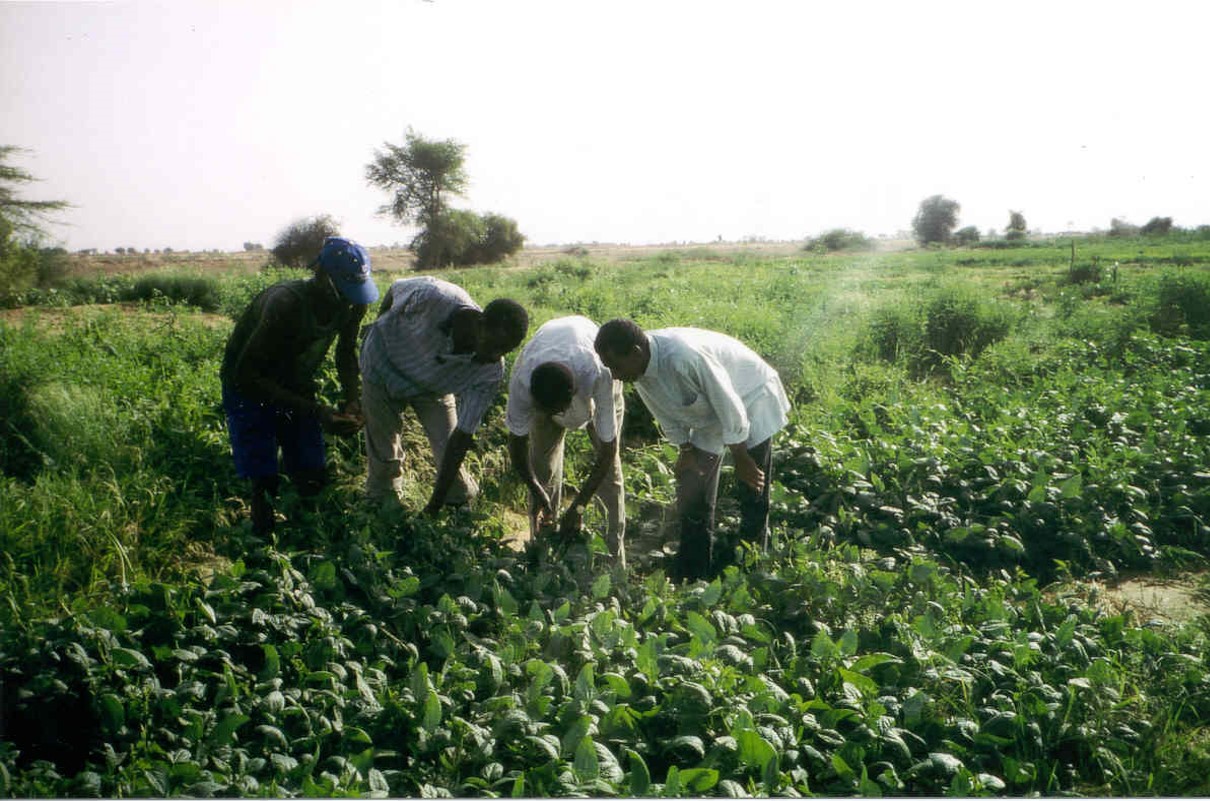 Mauritania and Senegal: From 2007 to 2012, in Mauritania and Senegal, the UB Solidarity Foundation created a space for training, research and dissemination, aimed at people with advanced technical studies in the fields of agriculture and environment, to provide additional training focused on sustainable regional development. It included the Master’s Degree in Rural Development and Cooperation, organised with the UB, the Gaston Berger University (Senegal), the UPC and the Món-3 Foundation.
Mauritania and Senegal: From 2007 to 2012, in Mauritania and Senegal, the UB Solidarity Foundation created a space for training, research and dissemination, aimed at people with advanced technical studies in the fields of agriculture and environment, to provide additional training focused on sustainable regional development. It included the Master’s Degree in Rural Development and Cooperation, organised with the UB, the Gaston Berger University (Senegal), the UPC and the Món-3 Foundation.





